Miami University’s 2023 Faculty Scholars and Junior Faculty announced
Dominik Konkolewicz, Fadel Megahed, Jeffrey Hunger, Andrea Kravats, and Imran Mirza were honored in recognition of sustained excellence or great potential in research
Miami University’s 2023 Faculty Scholars and Junior Faculty announced
Miami University Faculty Scholar awards have been presented to Dominik Konkolewicz, associate professor of Chemistry and Biochemistry, and Fadel Megahed, Endres Associate Professor of Information Systems and Analytics.
Miami University Junior Faculty Scholar Awards were presented to Jeffrey Hunger, assistant professor of Psychology; Andrea Kravats, assistant professor of Chemistry and Biochemistry; and Imran Mirza, assistant professor of Physics.
University Faculty Scholar Awards honor faculty whose sustained excellence in research or other creative activity has brought them prominence in their fields.
The University Junior Faculty Scholar Awards honor faculty who have demonstrated great potential in research or artistry and have achieved significant standing in their fields.
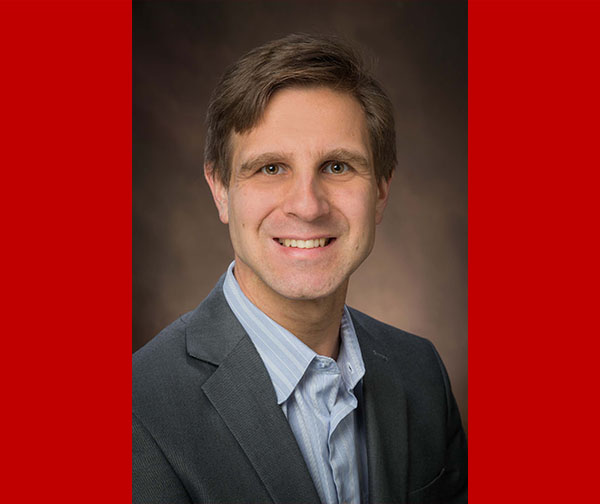
Dominik Konkolewicz
Konkolewicz is a polymer chemist who researches responsive or “smart” polymer materials with advanced functional behavior. His research group works on bioconjugation — attaching polymers to biological molecules to modify their properties — which can be used, for example, to facilitate the processing of cellulose into biofuels.
Polymer science is the basis of a huge industrial sector worldwide, and Konkolewicz is “a very big fish in this big pond,” a nominator said. Last year, he received the Royal Society of Chemistry’s 2022 Polymer Chemistry Lectureship award. He is one of only two researchers from a U.S. institution to have received this award, which recognizes early career researchers worldwide who have made significant contributions to the field of polymer chemistry.
He has also received Pioneering Investigator awards from the journals Polymer Chemistry (2020) and Chemical Communications (2022).
While his career is still relatively young — he joined Miami in 2014 — his “accomplishments of the last few years would have taken anyone else at least ten,” a nominator said. ”He has built the record of a high-profile, mid-career researcher by any measure.”
Since 2014, he has published nearly 100 papers. In 2022 alone, he co-authored more than 15 papers. “This is all carefully executed work with multiple graduate and undergraduate student co-authors,” according to a nominator.
His research has been supported by more than $3 million in external funding, including a prestigious CAREER Award from the National Science Foundation (NSF), an NSF RAPID program grant to develop coronavirus-attacking materials, and a grant from the Department of Energy. Last month, he received a new grant from the U.S. Army to design protein-polymer bioconjugates guided by magnetic resonance.
Konkolewicz is treasurer for the Polymer Materials Science and Engineering (PMSE) division of the American Chemical Society (ACS) and serves as a member of the editorial advisory boards for the journals Polymer Chemistry and ACS Macro Letters.
At Miami, Konkolewicz teaches a wide range of courses and is one of the “top teachers” in the department, a nominator said. He has been a research mentor to an inclusive team of one postdoctoral, 18 doctoral, four master’s and more than 35 undergraduate researchers.
In recognition of his commitment to diversity, equity, and inclusion initiatives at Miami, he was named the first winner of the College of Arts and Science’s Outstanding First-Generation Advocate Award. He serves on the Louis Stokes Alliance for Minority Participation (LSAMP) Advisory Board at Miami and on the College of Arts and Science DEI Council. He is co-director of the Department of Chemistry and Biochemistry’s NSF Research Experiences for Undergraduates (REU) Site and develops coursework for the First Year Research Experience UNV 171/172 course.
Konkolewicz received his doctorate from the University of Sydney, Australia in 2011 and was a senior research chemist at Carnegie Mellon University from 2011-2014. He was named a Miami University Junior Faculty Scholar in 2018.
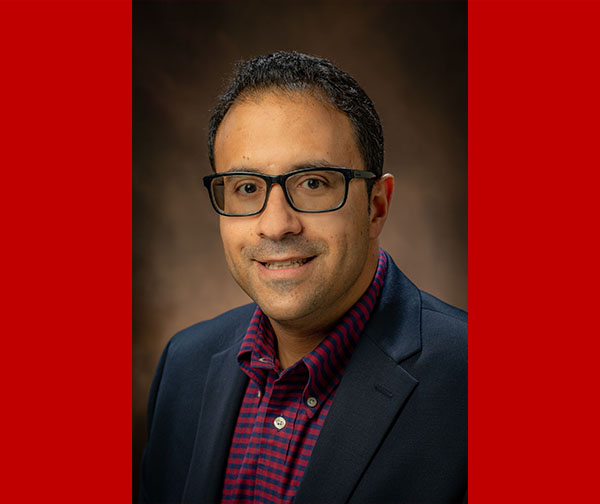
Fadel Megahed
Megahed is a respected scholar known both nationally and internationally among leaders in health/occupational analytics, data science, and industrial statistics.
His research involves finding solutions to problems that arise at the interface of machines and humans. The application areas for this type of work span areas such as the stock market, smartphone technology, medical technology, transportation safety, image processing, and working fatigue.
“As the interface between machines and humans evolves and technologies such as sensors become less expensive and more commonly used, we are presented with new types of data in increasing volumes,” wrote a nominator, adding that Megahed’s work explores this new data in important contexts.
He finds complex, important, high-impact problems and uses his skills to engineer scientific solutions to these problems, the nominator wrote.
In 2018, Megahed co-led a team (including two undergraduate students) on research funded by the NSF that looked at commercial truck driving. “This research endeavor was the first of its kind to consider a behavioral driving data set of its size and magnitude for the commercial trucking industry and safety applications,” a nominator wrote.
Megahed has received more than $1.2 million in external research support from agencies including the NSF and the National Institute for Occupational Safety and Health, as well as foundations and corporate funders such as American Society for Safety Professionals Foundation, GE Research, and Procter & Gamble. He has served as the principal investigator (PI) or co-PI on 14 grants.
Megahed has authored 48 peer-reviewed publications in journals including Applied Ergonomics, Decision Support Systems, Journal of Quality Technology.
His research has been the focus of more than 70 national or international presentations.
Megahed frequently includes students in research, engaging them in projects whenever possible, a nominator wrote. In 2020, he received an Associated Student Government/Provost’s Student Recognition of Teaching Excellence Award.
He earned his doctorate from Virginia Tech in 2012 and served as an assistant professor of Industrial and Systems Engineering at Auburn University before joining Miami in 2016. He became the Neil R. Anderson Endowed Assistant Professor in 2019 and the Endres Associate Professor of Information Systems and Analytics in 2022.
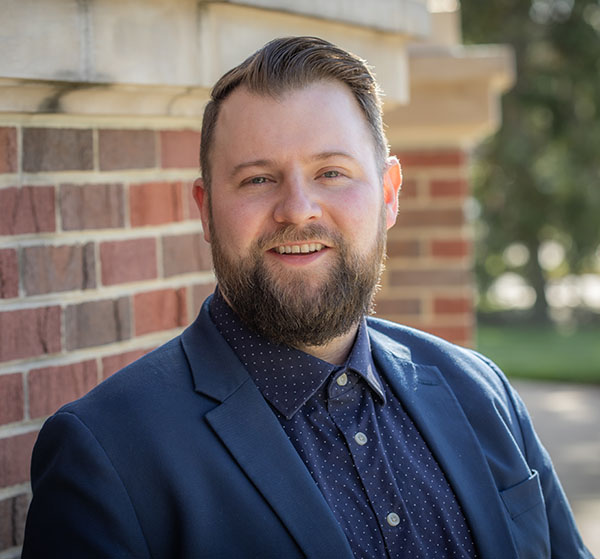
Jeffrey Hunger
Hunger’s research explores the impact of social stigmas — especially weight-based and body image — on health and well-being, and he is a recognized leader in this important scholarly area.
A nominator called him “a rising star in psychology” who does “a remarkable job as a public intellectual. I foresee amazing things from Jeff in the future based on the extremely impressive set of accomplishments he’s achieved in his short career thus far.”
Much of his work centers on the experiences of individuals who have been harmed by weight stigma or anti-fat bias, a nominator wrote, adding that his work is pushing the field into new directions.
“It’s no exaggeration to say that Jeff’s work has the potential to literally alter hundreds of thousands of individuals’ lives for the better,” a nominator wrote. “For example, he has recently been creating continuing education modules for physicians to recognize and counteract anti-fat bias and weight stigma to be rolled out nationwide.”
Hunger’s work takes a diverse approach to health assessment, including outcomes such as physiological indicators of stress, health behavior, psychological health, and social well-being.
Hunger is “phenomenally productive for a junior scholar,” a nominator wrote, noting he has published 24 peer-reviewed journal articles and book chapters.
“Not only does Jeff do strong empirical research that finds its way into some of the top outlets in psychology, he has also written a number of theoretical pieces that directly link the science to public policy,” a nominator wrote.
His work has been supported with $1.5 million in external funding from organizations including the NSF and National Institutes of Health.
In 2022, he was named a Fellow for the Society for Experimental Social Psychology.
Hunger earned his doctorate from the University of California, Santa Barbara, in 2017 and completed a postdoctoral fellowship at the University of California, Los Angeles, before joining Miami in 2019.
His work has been cited by or he has been interviewed for numerous high-profile outlets such as The Washington Post, Wired, Prevention Magazine, and Scientific American. He has been featured on several podcasts and the PBS web-series, “Vitals.”
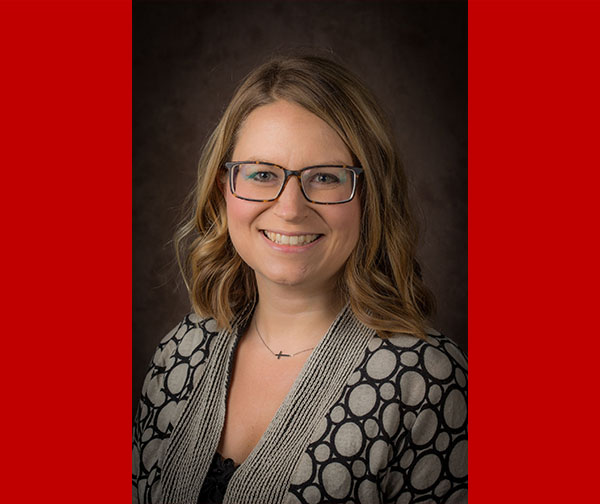
Andrea Kravats
Kravats, assistant professor of Chemistry and Biochemistry, joined Miami in 2018 and has developed an impressive research program “using a unique combination of laboratory biochemistry and computer modeling, allowing her to tackle one of the most important biomedical questions of our day,” a nominator said. Her work has been recognized nationally and internationally, making her a “rising star among Miami faculty.”
Kravats’ research program explores the factors that control protein folding and that allow mis-folded proteins to be recycled, saving the cell from disease. Her research promises to discover both fundamental information related to protein folding, and applied information leading to treatments for protein folding diseases such as Alzheimer’s disease, according to another nominator.
Her expertise allows her to develop hypotheses that can be tested in two settings: the computational arena where she can pinpoint molecular targets; and the laboratory setting where she can explicitly test potential mechanisms. “Very few labs nationally or internationally straddle the two worlds of computational and experimental science as skillfully as Andrea’s lab,” a nominator said.
Kravats “successfully navigated the uncertainties of a pandemic while establishing her research program and obtaining substantial external funding,” a nominator said. “She is making novel and significant contributions to an important field in biomedical research.
Her research program is supported with a Maximizing Investigator’s Research Award (MIRA) for Early Stage Investigators from the National Institutes of Health. The five-year grant, for more than $1.6 million, will allow her to expand her research program in new directions. She is only the second person from Miami to receive the MIRA grant for Early Stage Investigators.
She has been a mentor to 20 undergraduate student researchers, research adviser to seven graduate students.
Kravats has published five peer-reviewed research articles since joining Miami, a “remarkable” accomplishment given that much of this work was accomplished during the campus closures associated with the Covid-19 pandemic, according to her nominators.
She teaches classes including Biochemistry (CHM 432/532) and undergraduate and graduate courses in Protein Visualization and Protein Folding. Kravats is an “excellent teacher,” according to her nominators, and she is the recipient of a Student Recognition of Teaching Excellence award.
She received her doctorate from the University of Cincinnati in 2013 and was a Postdoctoral Fellow at the National Institutes of Health, National Cancer Institute, 2014-2018.
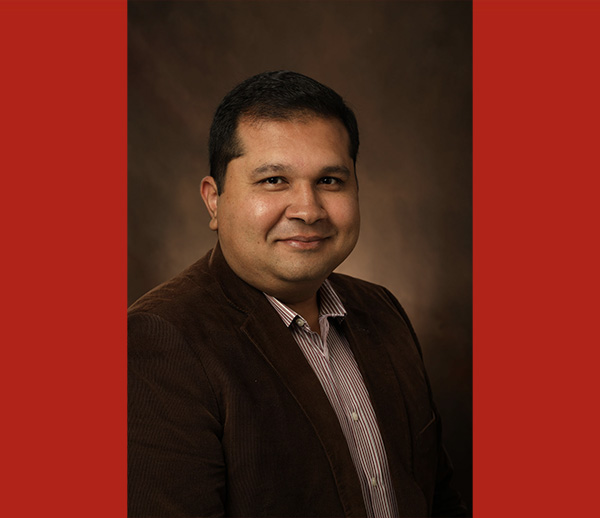
Imran Mirza
Mirza is a theoretical physicist in quantum optics and quantum information (QO/QI).
His research focuses on strong light-matter interactions with applications in spectroscopy, imaging, metrology, laser physics, and ultrafast optics.
A nominator wrote, “Strong light-matter interactions are a challenging area of study precisely because the simplifying assumptions of light-matter interactions in the weak coupling limit cannot be made. These strong interactions lay the foundation for future quantum technologies, including quantum computers.”
In May 2022, President Joe Biden announced two presidential directives that will advance national initiatives in quantum information science. “Mirza’s theoretical work centers on two areas of QO/QI that would benefit from greater fundamental understanding, specifically on the quantum processes of decoherence and dissipation, and the formation of correlated states of atoms and photons,” a nominator wrote.
Mirza received the Miami University Physics Outstanding Faculty Award for Excellence in Teaching in 2022 and the KITP Scholar Award for 2021-2023 from the Kavli Institute for Theoretical Physics at UC Santa Barbara.
He has developed a record of high-quality research and undergraduate and master’s student mentoring. He has published nine peer-reviewed articles in high-quality journals since he joined Miami. Six of those publications include student co-authors, including seven undergraduates and four master’s students.
He has received more than $550,000 in external funding, including an NSF Launching Early-Career Academic Pathways (LEAPS) grant He is PI (with Jennifer Blue, professor of Physics as co-PI) for the Physics and Engineering Research Experience site renewal from the NSF Research Experience for Undergraduates (REU) program.
Mirza earned his doctorate in physics from the University of Oregon in 2014 and was a postdoctoral research fellow and postdoctoral assistant professor at the University of Michigan before joining Miami in 2018.